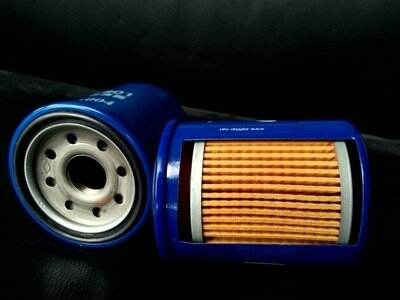Analysis of Key Factors Affecting Filter Efficiency
Analysis of Key Factors Affecting Filter Efficiency
As an indispensable component in modern industry and automotive fields, the filtration efficiency of filters is directly related to the operating status, service life, and environmental protection of equipment. Various factors in the design, manufacturing, and use of filters can significantly affect their filtration efficiency. This article aims to comprehensively analyze these factors in order to provide scientific guidance for the selection, use, and maintenance of filters.
1、 Filter structure and material
1. Filter media type
The core of a filter lies in its filtering medium, such as paper, metal mesh, fiberglass, nanofibers, etc. Different types of media have varying filtration capabilities for specific types of pollutants. For example, paper media is widely used in air filters and oil filters due to its good breathability and certain strength; The metal mesh medium performs well in fuel filters due to its high temperature resistance and corrosion resistance. Choosing the appropriate filtering medium is crucial for improving filtration efficiency.
2. Layer number and thickness of the medium
The number and thickness of filter media directly affect their filtration capacity and flow resistance. Multilayer media can more effectively capture small particles, but at the same time, it also increases the resistance of fluid passage and reduces flow rate. Therefore, when designing, it is necessary to balance filtration efficiency and flowability, and choose the optimal combination of layers and thickness.

2、 Filter design and manufacturing process
1. Fluid dynamics design
The fluid dynamics design of the filter determines the path and velocity distribution of the fluid passing through it. Reasonable design can minimize turbulence, reduce fluid erosion on the filter medium, and thus improve filtration efficiency and medium life.
2. Sealing performance
The sealing performance of a filter is one of the key factors affecting its filtration efficiency. Poor sealing can cause unfiltered fluid to bypass the filter medium and enter the system directly, thereby reducing filtration efficiency. Therefore, ensuring that the filter is installed correctly and the sealing elements are intact is a prerequisite for maintaining efficient filtration.
3、 Usage conditions and maintenance
1. Working environment
The working environment of a filter, such as temperature, pressure, fluid composition, etc., can all affect its filtration efficiency. For example, high temperature environments may accelerate the aging of filter media and reduce their filtration capacity; And fluids containing corrosive components will accelerate the corrosion of the medium and filter housing, shortening their service life.
2. Maintenance cycle
The maintenance cycle of the filter directly affects its continuous filtration efficiency. Regularly replacing the filter can maintain its filtering performance and avoid clogging and damage. However, an excessively long usage cycle may lead to a decrease in filtering efficiency and even cause system failures.

4、 Fluid characteristics
1. Fluid viscosity and density
The viscosity and density of fluids affect their permeability and resistance in filter media. When high viscosity fluids pass through filter media, the flow rate is slower, which is beneficial for particle deposition, but it also increases resistance; Low density fluids, on the other hand, may have higher kinetic energy and are more prone to scouring the filter medium, affecting filtration efficiency.
2. Types and concentrations of pollutants
The type and concentration of pollutants in the fluid directly affect the filtration load of the filter. Small, viscous, or insoluble pollutants pose greater challenges to filters and require more efficient filter media and design.
5、 Filter brand and quality
Brand and quality are undeniable factors that affect the filtration efficiency of filters. Famous brand filters often have advanced research and development capabilities, manufacturing processes, and quality control systems, which can provide more efficient and durable filter products. However, low-quality filters may have low filtration efficiency or even cause system failures due to insufficient materials, design, or manufacturing processes.
conclusion
The factors affecting the filtration efficiency of a filter are complex and diverse, involving the structure and material of the filter itself, design and manufacturing processes, as well as usage conditions, fluid characteristics, and brand quality. Therefore, when selecting and using filters, these factors should be comprehensively considered and scientifically evaluated to ensure that the filter can achieve the best filtering effect, guarantee the stable operation of the equipment and the cleanliness of the environment. At the same time, regular maintenance and replacement of filters are also key to maintaining their high filtration efficiency and extending their service life. In the future, with the advancement of materials and technology, the design of filters will become more intelligent and efficient, injecting new vitality into the development of the industrial and automotive fields.

 EN
EN







































